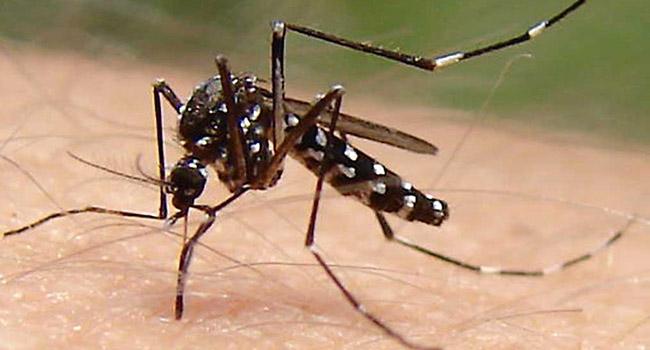
By Katalina Siasau
Two deaths from dengue fever at Vaiola Hospital last week, were confirmed by the Minister of Health, Dr. 'Ana 'Akau'ola. The deaths of a seven-month-old baby and a 19-year-old girl, were the first in the current outbreak that has seen nearly 600 cases recorded since February, throughout Tonga.
The 19-year-old girl died on Thursday, 24 April, at the medical ward of Vaiola Hospital, while the seven-month-old baby died on Friday, 25 April, in the ICU at Vaiola Hospital.
Minister 'Akau'ola told Matangi Tonga this morning that they had not yet confirmed whether these deaths were caused by dengue fever type 3. But there is a concern.
“Given these deaths, we are questioning about the potential presence of dengue Type 3 here."
She said that the Ministry had sent blood samples to New Zealand for testing to determine if it is dengue Type 3, and they are waiting for the results.
After the first dengue case was confirmed on 13 February, the Public Health Emergency Operation Center was activated.
At the time, Senior Medical Officer Dr. Joseph Takai said tha PCR tests had been sent to an Australian lab to determine the specific type of dengue fever present in Tonga. There are four types of dengue fever (types 1, 2, 3, and 4), with types 1 and 2 being more common in Tonga and other Pacific countries.
In March he reported that Dengue Virus Type 2 (DENV-2) was found in this current outbreak in Tonga. While some affected individuals were hospitalized, their conditions were not severe.
Symptoms include fever, headache, muscle and joint pains, and a characteristic skin rash that is similar to measles. In a small proportion of cases, the disease develops into life-threatening dengue hemorrhagic fever, which results in bleeding, thrombocytopenia, and leakage of blood plasma, or into dengue shock syndrome, in which dangerously low blood pressure occurs.
Infected mosquitoes
Dengue fever, also known as breakbone fever, is a viral infection transmitted to humans through the bite of infected mosquitoes.
The Aedes aegypti mosquito is the primary vector responsible for dengue transmission, although the Aedes albopictus species, also found in Tonga, can also transmit the virus.
These mosquitoes, recognizable by one or two white stripes, primarily bite in the early morning, noon, and evening. Adult mosquitoes can fly up to 200 meters, and anyone within a 20-meter radius of an infected individual who is bitten is at high risk of contracting the virus.
https://matangitonga.to/2025/02/19/dengue-outbreak-tonga-likely-increase...



